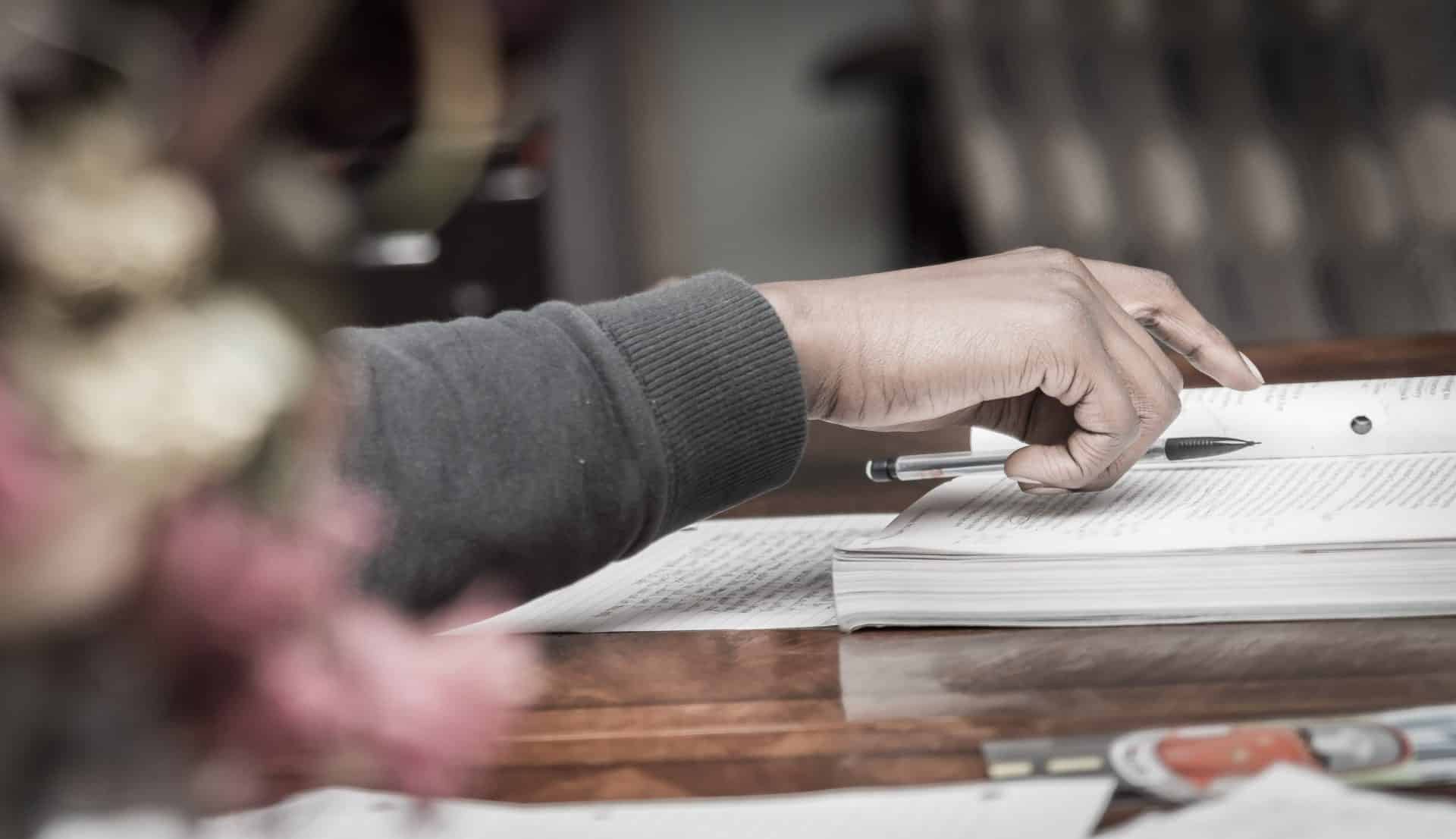We discuss here regularly the things you should absolutely NOT do when interviewing.
But what about the things you should do during an interview.
We’ve listed below the 11 things to do during an interview that will help you in the process.
Interviews are your single best step to landing that coveted position and taking the time to know what to do and what not to do may be the deciding factor.
You will never really know what the job interview will consist of, but with such a tight labor market, you want to make sure that you take every step possible to increase your chances.
You should be prepared to the best of your abilities.
Why Are Interviews So Important?
Employers across all industries utilize interviewing as one of the biggest determining factors in the hiring process.
Interviews offer a chance and an opportunity for the recruiter and the hiring manager to meet the candidate and assess their qualifications and capabilities.
Ultimately, interviews are important because it is the first face-to-face between the recruiter, the hiring manager, and the candidate.
The importance of interviews cannot be overstated.
It is why we’ve written tips on how to prepare for an interview and how body language can affect your chances at nailing your next interview.
All of your hard work is put on the line during an interview.
The time you spent on your resume, perfecting the outline and adding in the keywords.
The research that you put into finding out about the company and their reviews and offerings.
The time you spent writing and rewriting your cover letter and customizing it for each job application.
All of that time and effort comes into full fruition during the interview.
Interviews are a candidate’s chance to fully showcase themselves and their abilities to accomplish the responsibilities of the role.
But, it’s more than that.
In addition to showcasing your abilities and understanding of the role responsibilities, an interview is a first impression.
It is showing your professionalism and your etiquette in front of the hiring manager.
It is being personable and likeable and making a lasting impression that will lead to a job offer.
Look Sharp and Professional
Looking sharp and professional is one of the most important parts of the interview process.
You will want to wear fitted clothing, which is ironed and wrinkle-free.
In addition, you should wear clothing which is fit to your body and avoid baggy clothes or clothes which are too small.
Lastly, wear neutral colors which blend in.
You don’t want to wear clothes which are too bright or too dim.
You shouldn’t look to be the center of attention but look to be professional and buttoned up.
Be on Time
I cannot stress how important it is to arrive EARLY to your interview.
The absolute worst thing that can happen is to arrive late to your scheduled interview.
Arriving late shows that you are not able to plan your time accordingly and is a waste of valuable time that should have gone to speaking in person.
Many hiring managers have strict schedules, with limited flexibility.
If you arrive late, you are only cutting into your own time with them.
I always recommend arriving between 15-20 minutes before the interview is scheduled to begin and to take the time to relax and freshen up.
Research and Be Prepared
The interview is YOUR time to shine.
You should come in fully prepared, with a thorough understanding of the role and of the company.
You want to have an understanding of the role and what will be expected of you.
You should research the position and any information relating to the roles & responsibilities online.
In addition, having a solid understanding of the company and the company culture will allow for you to ask more meaningful and pertinent questions.
Listen, Then Speak
Too often, people are looking to speak without fully understanding or hearing the question.
You should be mindful of your listening skills and ensure that you are answering the full question.
Additionally, you want to take the time to answer the actual question and not bounce around with your response.
By taking the time to fully listen, you’ll be able to prepare a thoughtful and cohesive answer.
Be Enthusiastic
By portraying a sense of excitement and enthusiasm while at the interview, you encourage the interviewer to do the same.
You don’t want to portray a sense of dullness or not wanting to be there.
Come in prepared and enthusiastic and your chances will increase substantially.
Ask Questions
An interview is a two-way street.
You are interviewing for the open position while the company is interviewing for your interest in working there.
You should ask pointed, direct, and honest questions about both the position and the company.
Your genuine interest will be conveyed and will show the interviewer your interest in the position.
However, you should look to avoid questions concerning pay, time-off, and religious, political, or sexual in nature.
Give the Specifics
When answering questions or providing examples, you want to provide specific, direct examples.
Don’t be vague!
Answer directly and with an example of how your professional work is tied into it.
Posture Matters
When sitting in an interview, you will want to sit upright with correct posture.
Keep your hands on the table or on your resumes on the table.
Keep your line of sight directly at the interviewer.
You should ensure that you’re not shaking or bouncing your leg.
Don’t tap on the table with your fingers or other item.
In addition, keep your feet on the ground and try and avoid crossing your legs, which can come off as rude in some cultures.
Follow Up
After the interview, typically within 24 hours, you will want to send over a thank you email.
The thank you email is a follow up from your interview, taking the time to thank the interviewer for their time.
You should also look to add additional highlights from the interview.
This showcases your listening and the areas in which you would be of assistance to the company.
Follow up emails are extremely important and should be sent within 24 hours after the completion of the interview.
Be Prepared
It’s a simple concept, but you should be prepared for all possibilities.
Bring extra resumes, arrive early, and study potential common interview questions.
You should take the time before the interview to prepare for the interview.
You don’t want to be asked a question and be off-guard or unsure how to answer.
Prepare and replay your answer to yourself beforehand.
Breathe
Too often, everyone is so nervous about the interview, they have no time to focus on themselves.
Take the time before and during the interview to breathe and relax.
Having a cool, calm, and collected demeanor will help you and the interviewer.
You should utilize breathing exercises and clear your mind to help stave off stress and nervousness.
No one can guarantee how a job interview is going to go, but definitely research these tips and practice on a family member or friend.
Feel free to also check out our post on things you should take with you to an interview as-well-as things you should not take with you.
What Do Interviewers Look For From A Candidate In An Interview?
Assessment of Understanding
At the end of the day, the interviewer wants to see that the candidate understands the required skills.
They are looking to assess a candidate’s ability to utilize those skills and to handle the roles and responsibilities that will be presented in the job role.
They want someone who is able to accomplish and excel in the role.
The interviewer will likely ask specific, pointed questions regarding the required skills.
They will also ask about your previous experience utilizing those skills and where you learnt those skills.
This is typically where a candidate would use the STAR method to answer those questions effectively.
An Interpersonal Connection
Let’s face it, we like working with people that we like and are cordial with.
A hiring manager will likely want to see how personable a candidate is and if they make a good first impression.
If the candidate is polite, cordial, professional, and likeable, then the hiring manager may feel more inclined to offer them the position.
Though this is only one factor amongst many, it is definitely an important one.
Having an immediate connection with the hiring manager and allying yourself with them will put both of you at ease and create a more open, relaxed conversation and mood.
Speaking and Communication Skills
Perhaps one of the most important skills in the corporate world is the ability to speak and communicate effectively.
Being able to communicate effectively helps to avoid problems and can lead to faster issue resolution.
In addition, effective communication can help with departmental needs and ensuring that your ideas and wants are properly conveyed.
During an interview, the hiring manager will look to see how well a candidate speaks and is able to communicate.
Though they don’t expect you to be perfect, they will want to see how you respond to a question, how you ask one, and how you present yourself when speaking.
Before the interview, you should practice speaking and preparing your questions and answers.
You can do this in front of a mirror or with a trusted friend or family member.
Confidence Levels
Again, while the hiring manager doesn’t expect you to have the confidence level of a Hollywood actor, they do want to see a certain level of confidence and self-assuredness.
This confidence should be the ability to speak and interact in front of people and potential coworkers, colleagues, and clients.
Confidence is also particularly important for when an employee will need to speak or present to a large group of people.
This confidence level will assist them in that task and is something that the hiring manager will look for.
Social Behavior
A major factor that hiring managers look into is a candidate’s social behavior and their ability to read social cues.
Is the candidate cognizant of their surroundings?
Do they understand underlying, subtle, and unspoken rules?
A lot of business is done in “gray” areas.
That is, where there is no formal protocol or process.
By being able to read social cues properly, a candidate would be given a major leg-up over the other candidates.
Body Language and Etiquette
We’ve discussed previously how body language can affect your chances at nailing an interview.
Body language can be properly conveyed by sitting upright, smiling often, and utilizing your hands properly.
A candidate that slouches, appears disinterested, and doesn’t show much care during the interview shows that they do not care for the job role and will likely not be offered the position.
The Quality of the Answers
An interview is inherently different than speaking with a family member or a friend.
The interviewer and the hiring manager want to ensure you understand the questions and what is being discussed.
By utilizing industry terminology, acronyms, and words you can show the interviewer that you have a good grasp on the industry and the job.

What Are The Qualities Of A Good Candidate?
All companies look to hire the best, most capable, and most experience candidates.
They want candidates that will be able to perform the roles of the job with little oversight and to remain with the company for a number of years.
In addition, they want a candidate who is confident, well-spoken, knowledgeable, and has proper etiquette and business sense.
While these qualities are sought after, they are difficult to determine in a single in-person interview.
You can take certain steps to help the hiring manager see that you are a perfect candidate for the role.
Communication Skills
Above all else, you should practice and work on your communication skills.
You should be able to effectively and properly answer any questions posed by the hiring manager and should have a list of questions to ask the interviewer.
In addition, you should be confident and show that you fully understand the responsibilities of the role.
Analytical Skills
Though difficult to prove verbally, you should be able to show how you are able to assess an issue or problem and come to a resolution.
You also want to show that you are capable of understanding nuance and any “gray” areas.
Body Language
Body language plays a huge role in the interview process.
By showing yourself as engaging, caring, and “in the moment”, you help the hiring manager feel that you are a capable candidate.
Energized
First impressions are hugely important in an interview.
By being engaging and energized, you set the tone for the interview and can show your energy and enthusiasm for the role and position.
Professionalism
The hiring manager wants the candidate to be a professional.
By showing up on time, being respectful, and asking good, thought provoking questions, you showcase your professionalism and ability to work well in a corporate environment.
Conclusion
Most people don’t enjoy interviews.
They are unpredictable and there is a ton on the line and each candidate wants to put their best foot forward and make a great first impression.
While interviews are nerve-wracking, they are necessary and will likely be around for a while.
But their importance cannot be overstated.
They are helpful to both the recruiter, the hiring manager, the company, and the candidate.
It is a time to be open, honest, and transparent and to get a better understanding of both the company and the candidate.
Don’t forget, most people are nervous before an interview and that is normal.
Try to remain calm and practice breathing techniques to help you.
Just go in and give them your best, they will definitely see that and appreciate it.









